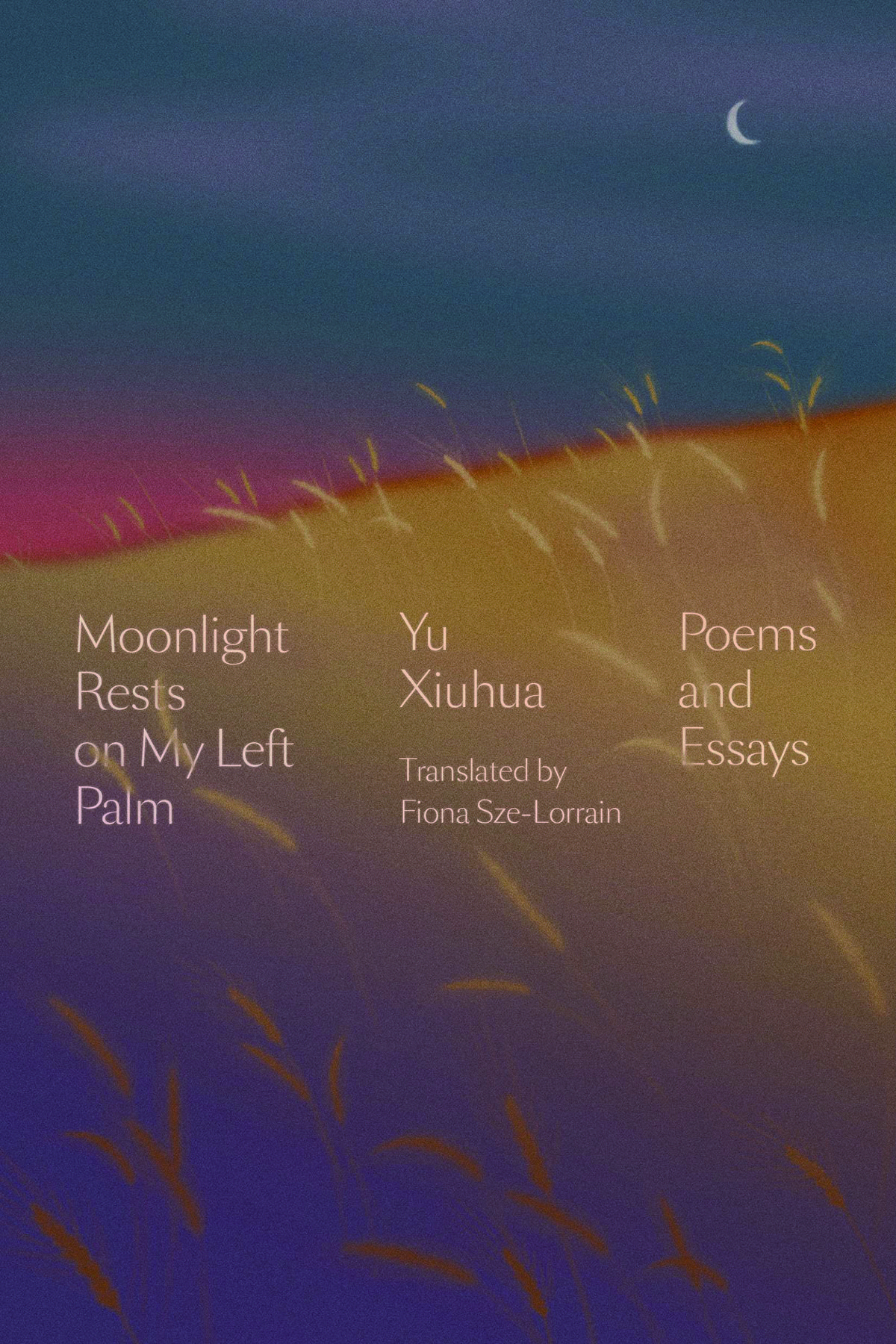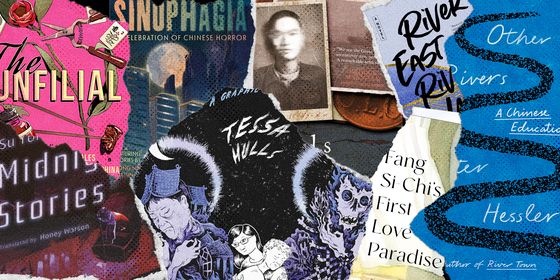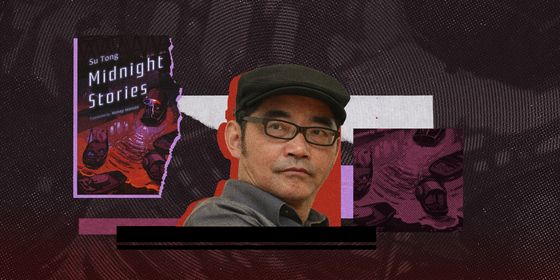Yu Xiuhua’s “Moonlight Rests on My Left Palm” is a celebration of the power of straight-talking
“Fucking you and being fucked by you are quite the same,” opens Moonlight Rests on My Left Palm, the first anthology of Chinese poet Yu Xiuhua (余秀华) to be published in English, translated by Fiona Sze-Lorrain.
The line is tinged with novelty. The poem from which it is taken, “Crossing Half of China to Fuck You,” went viral in November 2014 when a national poetry magazine published it on the Chinese messaging app WeChat, reportedly attracting over 1 million shares and bringing Yu to public attention. Although other translators have previously rendered the poem in English, Sze-Lorrain is the first to directly use the word “fuck” instead of the coyer “sleep with” or “lie with.”
The word choice echoes the deliberate vulgarity and delicate rawness that permeate all of Yu’s poetry. While the euphemism 睡 (literally, “sleep”) is not an obscenity in Chinese, it carries a certain coarseness in a society where public discussions of sexuality are still not widely accepted. Soon after it went viral, “Crossing” was labeled “slut poetry” by some internet users who felt ill-at-ease with such candid expressions of sexuality from Yu, a rural woman with cerebral palsy. But behind the poem’s title lies both an emotional world that is down-to-earth and writing style that is incredibly perceptive.
“I penetrate a hail of bullets to fuck you / I press countless dark nights into one dawn to fuck you / I, as many, run as one to fuck you...” Within a few lines, the poem becomes the story of a person striving to affirm her existence by connecting with another, no matter how frivolously. We digest Yu’s imagery, and with it, discover a poet who shatters and fuses claims to sexuality in an almost self-empowering way; who embraces the possibility of promiscuity through words. We see that for Yu, poetry is not about packaging thoughts and feelings, but about stripping away pretense, leaving life naked and raw.
Yu wrote her first poem, “Imprinting,” in 1998. She was just 22 years old, had lived her entire life in a small village in central China’s Hubei province, and had entered into an arranged marriage as a teenager. Yu’s disability made her unsuited for farming life, but she found an outlet through poetry, a literary genre whose tendency toward brevity stops her from overexerting herself. “Much as society might contaminate my mind, poetry cleanses me with compassion,” she writes in an essay that also appears in Moonlight.
The poems that follow “Crossing” continue to dazzle with their rich imagery and surprising juxtapositions. “Softly I sway in water / carry luminous words at the tip of grass,” she writes in “A Pool of Water.” Yu’s expressions are unembroidered, eschewing the rules of poetry and the impulse of many poets to dress up their words in smart turns of phrase. Yet they are always anchored in a simple time and place—often her village or her body—and are imaginative and free enough to fill the reader with envy.
Perhaps this linguistic freedom is intrinsic rather than deliberate. Yu gives clues to its origin in the essay “My Nostalgia Is Different Than Yours” as she comments on the perceived mundanity of village life: “The so-called plainness isn’t about plainness itself, but that we hurry our way through life, and have yet to chew on it carefully, thus wasting its exquisite flavors.”
By staggering words based on her everyday life, Yu widens, deepens, and crystallizes readers’ perceptions of reality. In “Wheat Has Ripened,” she equates the movements of a wheat field with romantic sensations: “In moonlight meditation, wheat rubs against each other / All things on earth are in love now.” “Short” starts innocuously, counting off short things in the field before laying the weight of time onto the reader’s shoulders: “Short things can’t be blown away / Father’s sixty years, my thirty-eight.”
Since rising to fame, Yu has never been seen as just a poet: She is a peasant poet, a poet with a disability, and a rural female poet who writes about sex and love. These labels are perhaps more helpful for understanding the social discourse around Yu rather than the poet herself. Several essays in Moonlight hint at how Yu challenges these classifications.
She writes about her disability in “The Swaying Mortal World,” shifting the focus away from herself: “Any social tolerance bestowed upon me, a distinctly handicapped person, will mirror the yardstick for a healthy society.” In “I Live to Reject Lofty Words,” she rejects being likened to others before her as well as being made into a role model for those after her: “People need a role model because they have no idea what to do in times of anguish...Once they imagine they have found a plausible reference at last, they might realize how futile it is.” By interweaving essays in between poetry, Moonlight also leaves space for Yu to bestow meanings upon her own life and combat those she has no control over.
Perhaps Yu’s rejection of labels and embrace of life’s plain and exquisite flavors originated from the same place—an eagerness to see life only in its truest forms. In the essay “In Rejection of Lofty Words,” she writes: “I am desperately in love with this inexplicable and obscure life. I love its conceit, and the haze that surfaces at low points in my life. I am grateful for being well and alive, and all because of my lowly existence.”
Yet Yu’s rejection does not seem to extend to a desire to control the interpretation of her poems. When a poem leaves the poet’s hand, it continues to have a life of its own. As further translations prolong the life of Yu’s work, it’s worth looking forward to the new meanings that will take root.
The Raw and Unabashed Poetry of Yu Xiuhua | Book Review is a story from our issue, “Upstaged.” To read the entire issue, become a subscriber and receive the full magazine.













